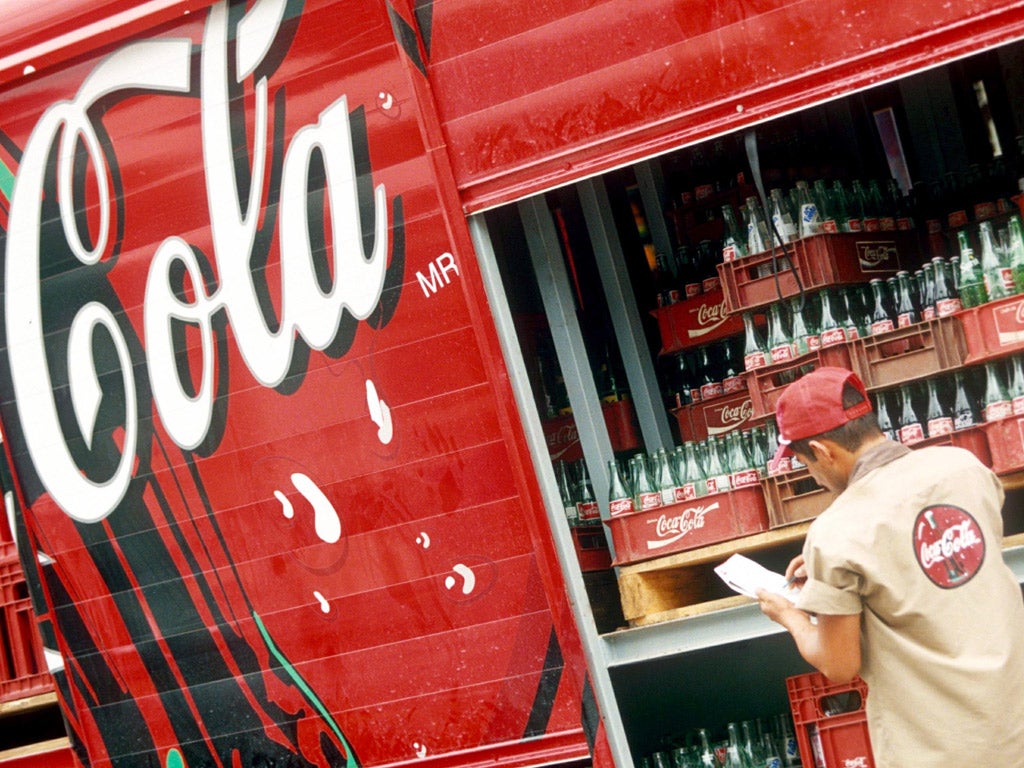Mexico’s Coke wars ignite as the government places a tax on ‘the real thing’
The 'Mexicoke' recipe is produced using traditional cane sugar, which its fans believe tastes far better

Your support helps us to tell the story
From reproductive rights to climate change to Big Tech, The Independent is on the ground when the story is developing. Whether it's investigating the financials of Elon Musk's pro-Trump PAC or producing our latest documentary, 'The A Word', which shines a light on the American women fighting for reproductive rights, we know how important it is to parse out the facts from the messaging.
At such a critical moment in US history, we need reporters on the ground. Your donation allows us to keep sending journalists to speak to both sides of the story.
The Independent is trusted by Americans across the entire political spectrum. And unlike many other quality news outlets, we choose not to lock Americans out of our reporting and analysis with paywalls. We believe quality journalism should be available to everyone, paid for by those who can afford it.
Your support makes all the difference.For several years, discerning American drinkers have consumed not the Coca-Cola produced in their own country, but imported Mexican Coke, known to connoisseurs as “Mexicoke”.
Since 1985, US Coke has been made with high-fructose corn syrup, whereas the version sold south of the border is produced using traditional cane sugar, which its fans believe tastes far better. Now, however, their beloved recipe may be about to change.
Last week, the Mexican government introduced an eight per cent tax on junk food and a levy on sugary drinks to try to combat the country’s ballooning obesity epidemic. More than two-thirds of the population are now overweight, and Mexicans consume more soft drinks per capita than any other nation on Earth, including the US.
The new legislation makes Mexico the largest market in the world to impose a tax on calorific drinks, and Latin America’s largest bottlers of Coca-Cola aren’t happy. Coca-Cola Femsa and Arca Continental, both based in Mexico, say the tax could lead to some 20,000 job losses. Coca-Cola controls more than 75 per cent of the country’s drinks market, and stocks in both bottling firms have dropped by between five and 10 per cent since the law was introduced.
As a result, Arca executives have threatened to alter the classic Mexicoke recipe with a “move to more fructose”, which is cheaper than cane sugar. According to a report by Quartz, Arca’s chief executive Francisco Garza said the change was “a very important part of the savings we are foreseeing now.”
Though it was originally imported to the US in 2005 to cater specifically to Mexican immigrants, and at first appeared almost exclusively at Mexican food stands, Mexicoke has become a cause célèbre among Coke aficionados in the US, who have come to love it for its apparently sweeter, crisper, fizzier and more authentic taste. Its adherents represent only a tiny fraction of Coca-Cola’s total US sales, but they are passionate: the most popular of a number of Mexican Coca-Cola fan pages on Facebook boasts more than 10,000 Likes.
Though the recipe is essentially the same worldwide, Coca-Cola bottlers use different sweetening ingredients depending on the most readily available alternative in each region. Coca-Cola Femsa, for example, uses sugar in Colombia, but corn syrup in Argentina. In the UK, Coca-Cola still counts “sugar” on its list of ingredients.
Of course, Coca-Cola insists that every Coke tastes the same, no matter where it was bottled. And a 2010 study by lab researchers from the University of Southern California found that, in fact, Mexican coke being sold in Los Angeles likely contained corn syrup, not cane sugar. So perhaps it’s the packaging: unlike its US counterpart, Mexican coke is still served in an old-fashioned 12-ounce bottle, requiring a bottle opener to prise off the cap.
Sugar Sugar: Coca-Cola’s past
Coke was first developed as an alcoholic “coca wine” by wounded US Civil War veteran John Pemberton, as an alternative to morphine. Pemberton created the non-alcoholic Coca-Cola in 1886, after his home state, Georgia, passed prohibition. Its two key ingredients were cocaine from the coca leaf, and caffeine from the kola nut.
Join our commenting forum
Join thought-provoking conversations, follow other Independent readers and see their replies
Comments